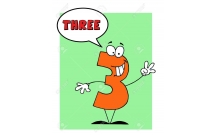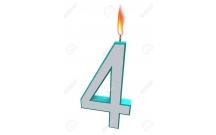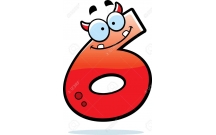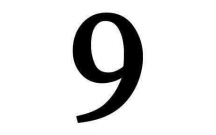
Đề Thi Thử Tiếng Anh THPT 2018 - đề 2
1
PRO SAT 2017 - MOON.VN
CÔ C
(Đề thi có 5 trang)
ĐỀ THI THỬ THPT QUỐC GIA NĂM 201
8
NĂM HỌC: 201
7
-201
8
Môn: TIẾNG ANH
Thời gian làm bài: 60 phút, không kể thời gian phát đề
Họ và tên thí sinh:.....................................................................
Số báo danh :.....................................................................
Mã đề thi
005
Mark the letter A, B, C, or D on your answer sheet to indicate the word whose underlined part
differs from the other three in pronunciation in each of the following questions.
Question 1:
A. achieves
B. stops
C. draws
D. plans
Question 2:
A. wanted
B. needed
C. started
D. obliged
Mark the letter A, B, C, or D on your answer sheet to indicate the word that differs from the
other three in the position of primary stress in each of the following questions.
Question 3:
A. application
B. interaction
C. internation
D. prevention
Question 4:
A. couple
B. secure
C. across
D. attack
Mark the letter A ,B ,C ,or D on your answer sheet to indicate the underlined part that needs
correction in each of the following questions.
Question5:Hardly had he entered the room than all the lights went out.
A. went B. than C. had he enter D. the light
Question6:John congratulated us to our excellent results although we didn’t know each other very well.
A. to B. each other C. excellent D. although
Question7: I often look into new words in the dictionary whenever I don’t know their meanings.
A. in B. look into C. their D. whenever
Mark the letter A, B, C, or D on your answer sheet to indicate the correct answer to each of the
following questions.
Question8:My student practices_____________ English with her friends every day.
A. speaking B. to speak C. spoke D. speak
Question9:Gold_____________ in California in the 19th century.
A. has been discovered B. was discover C. they discovered D. was discovered
Question10: Do you know the person_____________ next to you in the evening class?
A. who sit B. whom sits C. sitting D. whose sitting
Question11:_____________, we tried our best to complete it.
A. Thanks to the difficult homework B. Despite the homework was difficult
C. Difficult as the homework was D. As though the homework was difficult
Question12:The girls and flowers_____________ he painted were vivid.
A. whose B. that C. which D. who
Question13:It was very difficult to_____________ what he was saying about the noise of the traffic.
A. pick up B. make up C. turn out D. make out
Question14: It’s generally believed that – men build the and women make it home
A. Family B. house C. school D. hospital
Question15: According to the boss, John is the most for the position of secretary
A. Suitable B. reasonable C. comfortable D. supportive
Question16:Peter tried his best and passed the driving test at the first _______.
2
A. try B. attempt C. doing D. aim
Question17:Whenever problems come up, we discuss them frankly and find solutions quickly.
A. happen B. encounter C. arrive D. clean
Question18:―Each of us must take ______ for our own actions.
A. probability B. ability C. possibility D. responsibility
Question19:What are the _______ of that country? - I think it is some kinds of cheese and sauces.
A. drinks B. beverages C. grains D. special dishes
Mark the letter A ,B ,C ,or D on your answer sheet to indicate the most suitable response to
complete each of the following exchanges.
Question20: “Make yourself at home!” - John: “ _________________________”
A. Thanks! Same to you B. That’s very kind. Thank you
C. Not at all. Don’t mention it D. Yes, Can I help you?
Question21: - “Are you coming for a drink?”
– “______________. I must get this finished tonight.”
A. Thanks, but I mustn’t
B.Can I take a rain check
C. As a matter of fact, I do
D. Well, that’s very surprising
Mark the letter A, B, C, or D on your answer sheet to indicate theword(s) CLOSEST in meaning
to
the underlined word(s) in each of the following questions.
Question22: Punctuality is imperative in your new job.
A. Being efficient B. Being courteous C. Being on time D. Being cheerful
Question23: It is imperative that they finish the task on time.
A. unnecessary B. necessary C. suggested D. hoped
Mark th eletter A, B, C, or D on your answer sheet to indicate theword(s) OPPOSITE in
meaning to
the underlined word(s) in each of the following questions.
Question24: The Red Cross is an international humanitarian agency dedicated to reducing the sufferings of
wounded soldiers, civilians and prisoners of war.
A. happiness B. worry and sadness C. pain and sorrow D. loss
Question25:She was unhappy that she lost contact with a lot of her old friends when she went abroad to study.
A. made room for B. put in charge of C. lost control of D. got in touch with
Mark the letter A, B, C, or D on your answer sheet to indicate the sentence that is closest in
meaning to each of the following questions.
Question26:Their dog was so fierce that nobody would visit them.
A. Their dog was too fierce to visit.
B. They had so fierce a dog that nobody would visit them.
C. They had a such fierce dog that nobody would visit them.
D. They had a so fierce dog that nobody would visit them.
Question27:My mother had the house decorated.
A. The house was decorated by my mother. B. My mother had someone decorate the house.
C. My mother had to decorate the house. D. My mother has just decorated the house.
Question28:Nobody at all came to the meeting.
A. Not many people came to the meeting. B. Not a single person came to the meeting.
C. There was almost nobody at the meeting. D. Only a few people came to the meeting.
Mark the letter A, B, C, or D on your answer sheet to indicate the sentence that best combines
each pair of sentences in the following questions.
Question29:The holiday was so expensive. We could only afford five days.
A. It was such an expensive holiday that we could only afford five days.
B. The holiday was dirt cheap, so we could afford more than five days.
3
C. So expensive was a five-day holiday that we could hardly afford it.
D. A five-day holiday wasn’t cheap, so we couldn’t afford it.
Question30:The basketball team knew they lost the match. They soon started to blame each other.
A. As soon as they blamed each other, the basketball team knew they lost the match.
B. No sooner had the basketball team started to blame each other than they knew they lost the
match.
C. Not only did the basketball team lose the match but they blamed each other as well.
D. Hardly had the basketball team known they lost the match when they started to blame each
other.
Read the following passage and mark the letter A, B, C, or D on your answer sheet to indicate
the correct word or phrase that best fits each of the numbered blanks from 6 to 10.
Many people today would like the traditional two-parent family back, that is to say, they want a man and a
woman to (31)______ for life; they also think the man should support the family and the woman should stay
home with the children. However, few families now (32)______ into this category. In fact, if more women
decide to have children on their own, the single-parent household may become more typical than the traditional
family in many countries. Also, unmarried couples may decide to have more children – or they might take in
foster children or (33)______. And because people are staying single and living longer (often as widows), there
may be more one-person households. (34)______ the other hand, some people believe similar events happen
again and again in history: if this is true, people may go back to the traditional (35)_____ or nuclear family of
the past. Others think the only certainty in history is change: in other words, the structure of the future family
could begin to change faster and faster and in more and more ways.
Question 31:
A. marry
B. wed
C. engage
D. gather
Question 32:
A. belong
B. crowd
C. group
D. fall
Question 33:
A. bring up
B. feel
C. adapt
D. adopt
Question 34:
A. In
B. At
C. On
D. For
Question 35:
A. extended
B. extensive
C. enlarged
D. big
Read the following passage and mark the letter A, B, C,or D on your answer sheet to indicate
the correct answer to each of the questions from 36 to 42.
The Nobel prizes, awarded annually for distinguished work in chemistry, physic, physiology or
medicine, literature, and international peace, were made available by a fund bequeathed for that purpose by
Swedish philanthropist, Alfred Bernard Nobel. The prizes, awarded since 1901, are administered by the Nobel
Foundation in Stockholm. In 1969, a prize for economics endowed by the Central Bank of Sweden was added.
Candidates for the prizes must be nominated in writing by a qualified authority in the field of competition.
Candidates are judged by Swedish and Norwegian academies and institutes on the basis of their contribution to
mankind. The awards are usually presented in Stockholm ion December 10, with the King of Sweden
officiating, an appropriate tribute to Alfred Nobel on the anniversary of his death. Each prize includes a gold
medal, a diploma, and a cash award of about one million dollars.
Question 36.Why are the awards presented on December 10?
A. Because that date was established Nobel’s will.
B. Because Alfred Nobel died on that day.
C. Because it is a tribute to the King of Sweden.
D. Because Central Bank of Sweden administers the trust.
Question 37.Why were the prizes named for Alfred Nobel?
A. He left money in his will to establish a fund for the prizes.
B. He is now living in Sweden.
4
C. He serves as chairman of committee to choose the recipients of the prizes.
D. He won the first Nobel prize for his work in philanthropy.
Question 38.What does this passage mainly discussed?
A. Alfred Bernard Nobel. B. Great contributions to mankind.
C. Swedish philanthropy. D. The Nobel prizes.
Question 39.How often are the Nobel prizes awarded?
A. Once a year B. Twice a year C. Five times a year D. Once every two year
Question 40.A Nobel prize would NOT be given to _______.
A. a doctor who discovered a vaccine B. a composer who wrote a symphony
C. an author who wrote a novel D. a diplomat who negotiated a peace settlement
Read the following passage and mark the letter A, B, C,or D on your answer sheet to indicate the
correct answer to each of the questions from 43 to 50.
The goal of Internet-based encyclopedia Wikipedia (www.wikipedia.org) is to give everyone on the
planet access to information. Like other encyclopedias, Wikipedia contains lots of information: more than 2.5
million articles in 200 different languages covering just about every subject. Unlike other encyclopedias,
however, Wikepedia is not written by experts, but by ordinary people. These writers are not paid and their
names are not published. They contribute to Wikipedia simply because they want to share their knowledge.
Encyclopedias began in ancient times as collections of writings about all aspects of human knowledge.
The word itself comes from ancient Greek, and means “a complete general education”. Real popularity for
encyclopedias came in the nineteenth century in Europe and the United States, with the publication of
encyclopedias written for ordinary readers. With the invention of the CD-ROM, the same amount of
information could be put on a few computer discs. Then with the Internet, it became possible to create an online
encyclopedia that could be constantly updated, like Microsoft’s Encarta. However, even Internet-based
encyclopedias like Encarta were written by paid experts. At first, Wikipedia, the brainchild of Jimmy Wales, a
businessman in Chicago, was not so different from these. In 2001, he had the idea for an Internet-based
encyclopedia that would provide information quickly and easily to everyone. Furthermore, that information
would be available free, unlike other Internet encyclopedias at that time.
But Wales, like everyone else, believed that people with special knowledge were needed to write the
articles, and so he began by hiring experts. He soon changed his approach, however, as it took them a long time
to finish their work. He decided to open up the encyclopedia in a radical new way, so that everyone would have
access not only to the information, but also to the process of putting this information online. To do this, he used
what is known as “Wiki” software (from the Hawaiian word for “fast”), which allows users to create or alter
content on web page. The system is very simple: When you open the web site, you can simply search for
information or you can log on to become a writer or editor of articles. If you find an article that interests you –
about your hometown, for example – you can correct it or expand it. This process goes on until no one is
interested in making any more changes.
Question 41: Wikipedia is written by_________.
A. paid written B. millionaires C. normal people D. world experts
Question 42: The phrase “these writers” in the first paragraph refers to____.
A. ordinary readers B. ordinary people C. encyclopedia experts D. every subject
Question 43: The phrase “the word” in the second paragraph refers to_________.
A. knowledge B. encyclopedia C. writing D. collection
Question 44: Microsoft’s Encarta is cited in the passage as an example of_________.
A. CD-ROM dictionary B. printed encyclopedia
C. online encyclopedia D. updateable online encyclopedia
Question 45: The word “brainchild” in the second paragraph of the passage can be best replaced by________.
A. born B. child C. product D. father
Question 46: The word “approach” in the third paragraph of the passage means_________.
5
A. idea B. time C. method D. writing
Question 47: The user of Wikipedia can do all of the following EXCEPT_________.
A. have access to information B. determinate the website
C. modify information D. edit information
Question 48: We can say that Jimmy Wales_________.
A. became very famous after the formation of Wikipedia B. is the father of Wikipedia
C. made a great profit from Wikipedia D. decides who can use Wikipedia
Question 49: Wiki software enables_________.
A. exchanging articles B. a purchase of information
C. limited access D. editing
Question 50: Wikipedia is a(n)_________.
A. book B. journal C. article D. dictionary
------------------THE END-----------------
6
HƯỚNG DẪN GIẢI CHI TIẾT
1B
2D
3D
4A
5B
6A
7B
8A
9D
10C
11C
12B
13D
14B
15A
16B
17A
18D
19D
20B
21B
22C
23B
24A
25D
26B
27B
28B
29A
30D
31A
32D
33D
34C
35A
36B
37A
38D
39A
40B
41C
42B
43B
44D
45C
46C
47B
48B
49D
50B
1. B
A. Achieves /ə'tʃi:vz/
B. Stops /stɔps/
C. Draws /drɔ:z/
D. Plans /plænz/
Cách phát âm đuôi “-s” và “-es”
• /s/: tận cùng là âm vô thanh [f,k,p,t,θ]
VD: chefs, kicks, claps, hits, paths /pɑː θs/
• /s/: tận cùng là [p,pe,f,fe,gh,ph,t,te,k,ke]
VD: claps, hopes, laughs/ lɑː fs/, photographs, hats, hates, kicks, lakes,…
• /iz/: tận cùng là [s,ʃ, tʃ, z, dʒ]
VD: buses, washes, catches, buzzes, judges,…
• /iz/: tận cùng là [s,x,ch,sh,ce,se,ge]
VD: classes, boxes, watches, voices, horses, pages,…
• /z/: tận cùng là các phụ âm còn lại – phụ âm hữu thanh [b, d, g,l, m, n, r, v, ð] sau các nguyên âm
VD: rubs, cards, eggs, walls, names, cleans, wears, lives, clothes, tries /traiz/, toys / toiz/,…
2. D
A. Wanted /wɔntid/
B. Needed /ni:did/
C. Started /stɑ:tid/
D. Obliged /ə'blaiʤd/
Cách phát âm đuôi “ed”
• /t/: tận cùng là âm vô thanh [f,k,p,t,θ, ʃ,tʃ ]
Ví dụ: watched, looked, stopped, worked, placed, passed,...
• /id/: tận cùng là [t,d], đặc biệt: động từ dạng V_ed được dùng như tính từ (wicked, aged,...)
Ví dụ: needed, wanted, decided, waited, edited, ...
• /d/: tận cùng là âm hữu thanh gồm các phụ âm còn lại và nguyên âm.
Ví dụ: lived, played, studied, filled, cleaned, followed, called, prepared,...
3. D
A. Application /æpli'keiʃn/
B. Interaction / intər'ækʃn/
C. International /intə'næʃənl/
D. Prevention /pri'venʃn/
có thể bạn quan tâm
.jpg)
Đề Thi Thử Tiếng Anh THPT 2018 - đề 1
12
791
272
Tiếng Anh phổ thông
12
(New)

Đề Thi Thử Tiếng Anh THPT 2018 - đề 3
12
698
293
Tiếng Anh phổ thông
12
(New)

Đề Thi Thử Tiếng Anh THPT 2018 - đề 5
12
713
298
Tiếng Anh phổ thông
12
(New)

Đề Thi Thử Tiếng Anh THPT 2018 - đề 7
12
709
275
Tiếng Anh phổ thông
12
(New)

Đề Thi Thử Tiếng Anh THPT 2018 - đề 8
12
797
263
Tiếng Anh phổ thông
12
(New)

Đề Thi Thử Tiếng Anh THPT 2018 - đề 4
12
809
346
Tiếng Anh phổ thông
12
(New)

Đề Thi Thử Tiếng Anh THPT 2018 - đề 6
12
715
473
Tiếng Anh phổ thông
12
(New)

Đề Thi Thử Tiếng Anh THPT 2018 - đề 9
12
800
337
Tiếng Anh phổ thông
12
(New)
thông tin tài liệu
12 Đề thi thử THPT 2018 Môn Tiếng Anh có đáp án chi tiết" bao gồm những bài thi tuyển chọn hay nhất, hay gặp nhất trong các đề thi thật, nó là nguồn tài liệu tham khảo hữu ích cho các bạn học sinh ôn thi kỳ thi THPT Quốc Gia môn tiếng Anh 2018., ngoài ra cũng là cơ hội để các em thử sức và làm quen dạng đề, dạng câu hỏi rất cần thiết đối với thí sinh trước khi bước vào kì thi chính thức để tránh khỏi sự bối rối và quan trọng là tập dượt việc phân bổ, quản lý thời gian để làm hết bài thi nhằm dành điểm cao nhất.
Mở rộng để xem thêm
từ khóa liên quan
tài liệu mới trong mục này
tài liệu hot trong mục này
tài liệu giúp tôi
Nếu bạn không tìm thấy tài liệu mình cần có thể gửi yêu cầu ở đây để chúng tôi tìm giúp bạn!
xem nhiều trong tuần
CHÍNH SÁCH PHÁT TRIỂN: Bài 3 - Lý thuyết phát triển
Tiếng Anh lớp 3 - Đề thi học kỳ 2 trường Tiểu Học Nguyễn Khuyến, Đắk Lắk
Hướng dẫn chuyển Bookmarks từ Firefox sang Chrome
Giải bài tập SBT Tiếng Anh lớp 9 mới Unit 7
Thủ thuật Infographics dành cho người mới bắt đầu làm Marketing
Làm gì để tránh biến chứng bệnh tiểu đường
yêu cầu tài liệu
Giúp bạn tìm tài liệu chưa có
×



